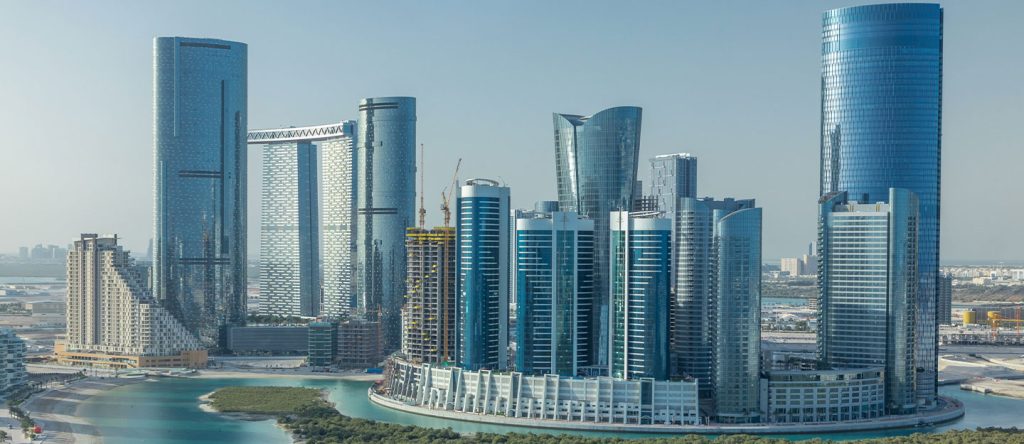Have you ever fallen in love with a glossy property listing in Abu Dhabi, only to wonder if it’s too good to be true? You’re not alone. With the emirate’s real estate market booming, scams have become a silent predator, targeting both locals and expats. But fear not—armed with the right knowledge, you can navigate this landscape like a pro. Let’s dive into how to protect your investment while avoiding the pitfalls.
ABU DHABI DEPARTMENT OF MUNICIPALITIES AND TRANSPORT (DMT)
Verify Developer Credentials Through Official Channels
Before signing anything, confirm the developer’s legitimacy. The DMT oversees all real estate activities in Abu Dhabi and maintains a public registry of licensed developers. For instance, Aldar Properties, one of the UAE’s largest developers, is fully accredited. Cross-check their license number on the DMT portal—a five-minute step that could save you millions. Unregistered developers often lure buyers with steep discounts, but these “deals” usually vanish faster than a desert mirage.
Visit the DMT office on Al Mamoura Street or access their online portal for instant verification.
ALDAR PROPERTIES PJSC
Stick to Reputed Developers for Off-Plan Projects
Off-plan properties can be lucrative, but they’re also a common scam vector. Established firms like Aldar offer transparent payment plans tied to construction milestones. For example, their Saadiyat Island projects require only 10% upfront, with the rest paid in installments. Avoid smaller developers demanding 50% or more before breaking ground. Did you know? In 2023, 30% of property disputes in Abu Dhabi involved off-plan defaults. Always insist on an Escrow account—a legal requirement under Abu Dhabi’s Law No. 3 of 2015.
AL REEM ISLAND
Beware of “Bargain” Listings in Prime Areas
A three-bedroom apartment on Al Reem Island for AED 800,000? Sounds tempting, but tread carefully. Average prices here hover around AED 1.2 million. Scammers often clone legitimate listings, altering contact details. To spot fakes, compare the listing with multiple portals like Bayut or Property Finder. If the agent insists on cash payments or pressures you to decide immediately, walk away. Pro tip: Visit the property at different times to check for noise or hidden defects.
ABU DHABI REAL ESTATE CENTRE (ADREC)
Use Registered Brokers Only
In Abu Dhabi, real estate agents must hold a valid ADREC license displayed in their office. Ask for their ID number and verify it online. Unlicensed brokers often operate through Instagram or WhatsApp, offering “exclusive” deals. A common trick involves charging inflated “visa processing fees” for non-resident buyers—a service reputable agents provide free. Remember: Legitimate agents never ask for fees exceeding 2% of the property value.
TAWTHEEQ REGISTRATION SYSTEM
Ensure Your Contract is Legally Binding
Every rental or sale contract in Abu Dhabi must be registered via Tawtheeq, the government’s e-registration platform. This process includes a title deed check to confirm ownership. Scammers may present forged deeds or claim a property is “under inheritance dispute.” For AED 500, you can request a title deed extract from the DMT. Fun fact: Tawtheeq reduced property fraud by 40% since its 2019 launch, according to www.few.ae editor research.
ABU DHABI COMMERCIAL BANK (ADCB)
Avoid Cash Transactions for Down Payments
Wire transfers through regulated banks like ADCB create a paper trail. If a seller insists on cash, consider it a red flag. For off-plan purchases, ensure payments go directly into the project’s Escrow account—not the developer’s general fund. ADCB’s property financing team also offers free legal checks for buyers. Note: Scammers often use emotional appeals, like claiming they need urgent cash for medical bills. Stay detached.

ABU DHABI JUDICIAL DEPARTMENT
Hire a Lawyer Specializing in Real Estate
A legal consultant registered with the Judicial Department can review contracts for hidden clauses. For instance, some agreements include hefty penalties for late payments or restrict resale rights. Lawyers typically charge AED 3,000–5,000—peanuts compared to potential losses. The www.few.ae editor team recommends firms like Al Tamimi & Company, which handled 120+ property cases last year.
YAS ISLAND
Verify Project Approvals Before Investing
Even mega-developments like Yas Island have rogue sub-projects. Before buying, check if the project has a DMT-issued Building Completion Certificate. For ongoing constructions, confirm the contractor’s credentials. In 2022, a fake “beachfront villa” scheme here duped 20 investors out of AED 12 million. The villas? They never broke ground.
ABU DHABI URBAN PLANNING COUNCIL (UPC)
Cross-Check Zoning Laws
A seller might promise you can convert a residential unit into a café or clinic. Don’t take their word for it. The UPC’s Plan Abu Dhabi 2030 outlines zoning regulations. For example, converting a villa on Al Ghadeer into a nursery requires a separate permit. Violations can lead to fines up to AED 500,000.
DUBAI-BASED SCAM ALERT
Watch for Cross-Emirate Scams
Fraudsters often exploit Abu Dhabi’s proximity to Dubai. A notorious 2023 case involved a Dubai-registered firm selling “luxury apartments” near the Abu Dhabi-Dubai border. The land? Uninhabitable desert. Always confirm the property’s exact emirate and jurisdiction.
NAD AL SHIBA COMPLEX
Inspect the Property Personally
Photos can be deceiving. Visit the property multiple times—once during rush hour to check traffic noise. In complexes like Nad Al Shiba, test all utilities. One buyer discovered their “fully connected” villa lacked sewage lines, costing AED 80,000 to fix.
ABU DHABI RENTAL DISPUTES SETTLEMENT CENTRE
Know Your Recourse Options
If scammed, file a complaint here within 30 days. The center resolves 85% of cases within six weeks. Bring all documents, including WhatsApp chats—they’re admissible as evidence.
By now, you’re equipped to spot the red flags others miss. Abu Dhabi’s market offers golden opportunities, but only to the vigilant. Ready to make your move?
